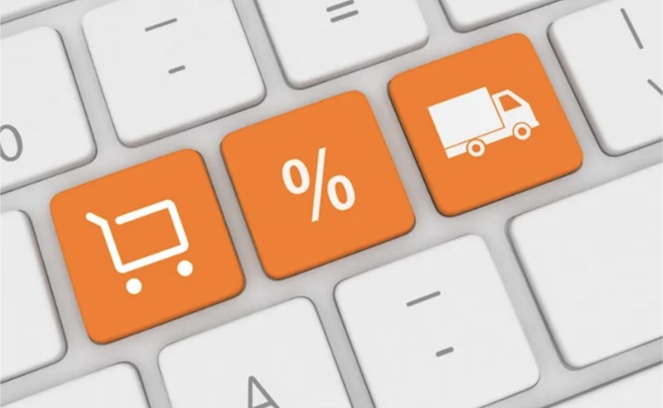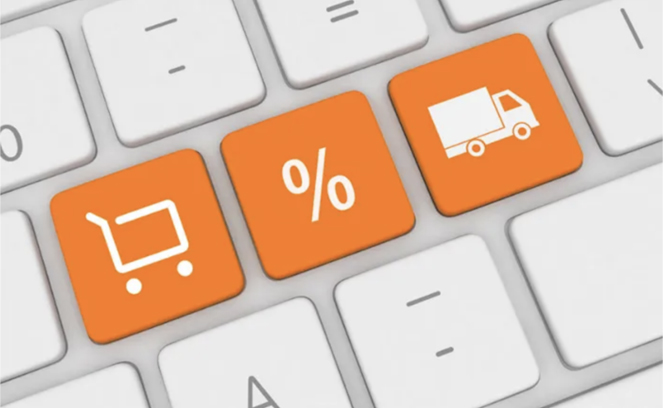
How to find suitable sourcing websites?
In the era of globalization and digitalization, procurement activities have gradually shifted from traditional offline models to online.
Sourcing websites, as bridges connecting buyers and suppliers, provide enterprises with a more convenient and efficient procurement method. Faced with numerous sourcing websites in the market, how to choose the most suitable platform has become a challenge for many enterprises.

The purpose of this guide is to help companies understand remote sourcing websites, master the criteria for selecting remote sourcing websites, and strategies for effectively utilizing remote sourcing websites for procurement activities.
I. Understanding remote sourcing websites
Clarify the definition and types of sourcing websites.
Definition and Purpose
Sourcing websites are online platforms that connect buyers with suppliers. These websites simplify the procurement process by providing access to a wide range of products and services across various industries and geographies, streamlining procurement activities, reducing costs, and enhancing supply chain efficiency.
Types of sourcing websites
Based on their functions and characteristics, sourcing websites can be categorized into types such as B2B marketplaces, industry-specific platforms, and so on.
Different types of websites have their own advantages, suitable for different remote sourcing needs.
1. B2B Market: Platforms like Alibaba, where multiple suppliers offer products.
2. Industry-specific platforms: Such as ThomasNet, which focuses on industrial products.
3.Innovative sourcing service: TradeAider’s WeSource service,a sourcing agent to help buyers to source apparel & textiles products and other related industry products.
II. Criteria for Selecting Sourcing Websites
When selecting sourcing websites, we need to focus on the following key criteria:
Product range and quality. Ensure that the website provides the required products and meets the quality standards.
Supplier verification and credibility. Ensure that the website has a robust supplier verification process to avoid scams and inferior products. Look for platforms that offer certified supplier badges and comprehensive evaluations.
User experience and interface. A user-friendly interface, convenient navigation, and detailed product listings can enhance the remote sourcing experience. If it is international procurement, the platform should also provide multilingual support.
Customer support and dispute resolution. Reliable customer support and clear dispute resolution mechanisms are important guarantees in the remote sourcing process. Ensure that any supplier issues can be efficiently resolved.
Cost and payment options. Consider the cost and payment security of the platform. Consider the cost of using the platform, including subscription fees or transaction fees. Flexible payment options, such as escrow services, can provide additional security guarantees.
III. Popular Sourcing Websites
There are many well-known remote sourcing websites on the market, such as Alibaba, Global Resources, and other global procurement platforms, as well as ThomasNet and other industry-specific platforms. Additionally, TradeAider’s WeSource service, an innovative sourcing agent that helps buyers source apparel & textiles products and other related industry products, is an excellent choice for more precise and efficient sourcing. When choosing, you can filter according to your own needs.
IV. Evaluating Supplier Reputation
In addition to choosing the right sourcing websites, the evaluation of suppliers is also crucial.
Comprehensively understand the credibility and strength of suppliers through multiple aspects:
Validation process. Search for suppliers validated by third-party organizations. Validation typically involves checking business licenses, financial status, and factory audits.
Reviews and ratings. Customer reviews and ratings can provide insights into the reliability of suppliers and the quality of products. Platforms usually offer detailed feedback systems to help buyers make informed decisions.
Certification and compliance. Check industry-specific certifications such as ISO, CE, or FDA approvals. Adhere to international standards to ensure product quality and safety.
Communication and responsiveness. Effective communication is crucial. Evaluate the supplier's ability to respond to inquiries, as well as their capacity to provide detailed product information and quotations.
V. Utilizing Technology and Tools to Enhance Sourcing Efficiency
Internet B2B platforms or production material remote sourcing websites are usually equipped with advanced technologies or tools, such as artificial intelligence, electronic procurement systems, etc., to help enterprises improve procurement efficiency and quality.
Understand and master the use of these tools, so that enterprises can better conduct remote sourcing activities.
Artificial intelligence and machine learning. AI tools can analyze remote sourcing patterns, predict demand, and recommend suppliers. Platforms like Alibaba use AI to enhance search results and supplier matching.
Electronic procurement system. The integrated electronic procurement system simplifies the procurement process by automating RFQ, purchase orders, and invoice processing. It improves efficiency and reduces manual errors.
Data analysis. Data analysis tools help evaluate supplier performance, monitor market trends, and make data-driven remote sourcing decisions.
VI. Addressing Legal and Regulatory Requirements
In the procurement process, companies need to comply with relevant laws and regulatory requirements, such as import and export regulations, trade agreement compliance, intellectual property rights, etc.
Ensure that both suppliers and procurement platforms comply with these requirements to reduce legal risks:
Import and export regulations. Understand the legal requirements for import and export commodities, including tariffs, customs duties, and documentation.
Compliance with trade agreements. Understanding trade agreements that may affect procurement decisions, such as the North American Free Trade Agreement, European Union trade agreements, or bilateral treaties.
intellectual property rightEnsure that suppliers respect intellectual property rights to avoid legal disputes and potential financial losses.
Environmental and ethical standards. Adherence to environmental regulations and ethical standards (such as fair labor practices) is increasingly important. Check the compliance of suppliers with these standards.
VII. Best Practices for Effective Remote Sourcing
To achieve effective procurement, companies should follow the following best practices:
Invest time in researching potential suppliers and remote sourcing platforms. Use multiple sources to verify information and avoid relying solely on platform listings.
Establish long-term relationships with reliable suppliers. Strong relationships can lead to better terms, priority access to products, and improved cooperation.
Regularly review and evaluate supplier performance. Ensure continuous compliance with quality standards and identify any issues early on.
Maintain a focus on market trends and developments. This can be used to develop remote sourcing strategies and help predict changes in supply and demand.
Consider hiring a procurement consultant to provide professional knowledge and access to a broader network of suppliers.
Finding and utilizing suitable sourcing websites is key to enhancing personal work efficiency and boosting corporate profits.
Finding the right remote sourcing websites requires a comprehensive consideration of multiple factors. By fully understanding the types and characteristics of various remote sourcing websites globally, matching the selection criteria of your own company, accurately assessing supplier credibility, and utilizing advanced technology and tools, you can find the most suitable remote sourcing websites among numerous platforms. This will enhance the efficiency and quality of procurement, ensuring the stability and reliability of the production supply chain.
Grow your business with TradeAider Service
Click the button below to directly enter the TradeAider Service System. The simple steps from booking and payment to receiving reports are easy to operate.





